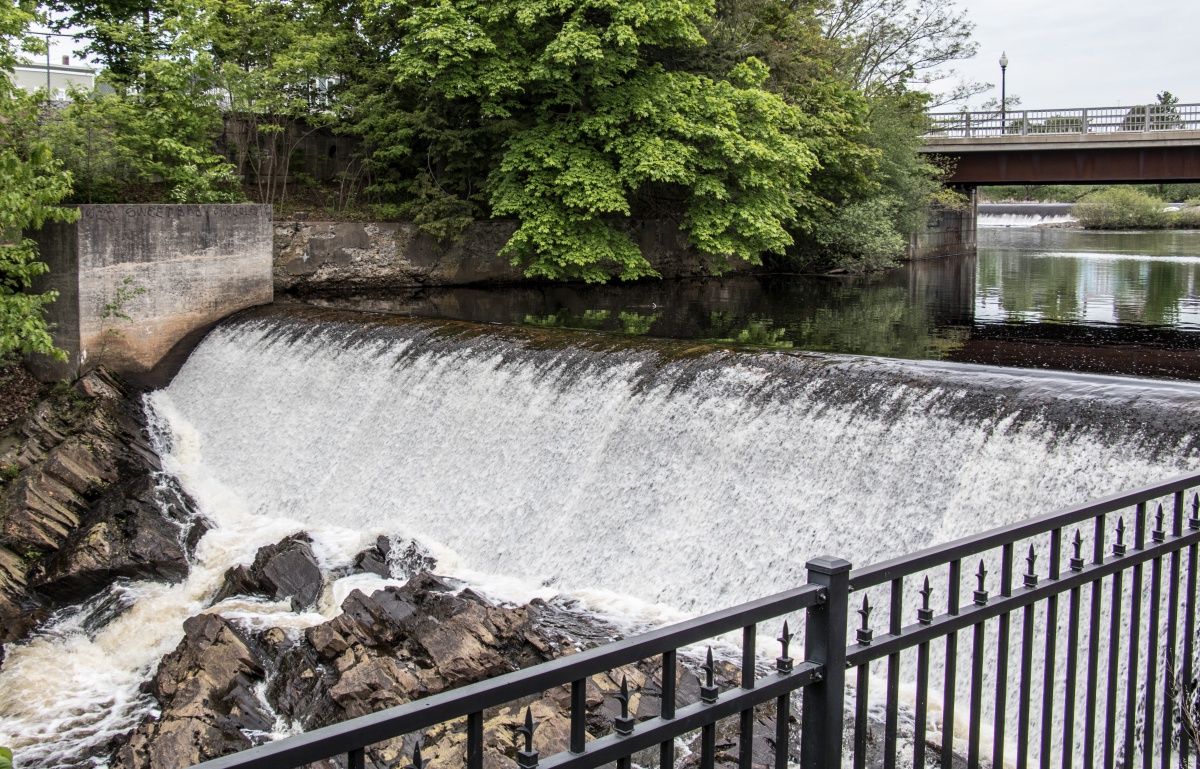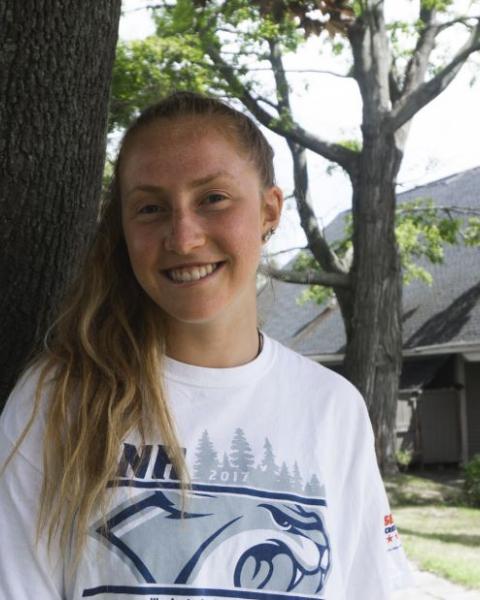Exploring Communities and a Career with UNH Extension Internships
As part of my summer UNH Extension internship with the Community and Economic Development team, I’ve been helping collect data about how New Hampshire communities can better use trails, waterways and other natural resources to bolster local economies.
The internship has given me lots of exciting opportunities, from working closely with my mentor Shannon Rogers to getting to know communities throughout the state. As an environmental conservation and sustainability major pursuing a career in higher education, my internship with UNH Extension has helped me find a path for my own career – and make a difference for some New Hampshire towns.
It’s been fascinating to see how communities approach their natural resources. After conducting a bit of research about connecting towns and trails, it seems that there can positive economic benefits for communities in utilizing trails as an economic development strategy. Those benefits extend to the people who use the trails and to nearby businesses. But when weighing these benefits, and the costs of maintaining the trails and natural resources, every community is different.
In the field, I’ve been using Collector, an app that uses ArcGIS to catalog notable characteristics or features, like trails, river walks and other natural resources. When I enter a town, I look for the characteristics that make an effective town, such as businesses, lighting, signage, trailheads and overnight accommodations, among others. Once I’ve found a notable feature, I add it to Collector, define it as either an existing asset or an opportunity, take a photo, and write a brief description. Learning to use the app was difficult at first – classifying and defining natural resources is very subjective. But with practice, it got easier, and working with other women made the process go by more quickly.

Connecting Trails and Downtowns
As I’ve explored New Hampshire during my UNH Extension internship, two towns stand out: Exeter and Rochester. Both have very different downtowns and natural resources, and both towns have existing assets and exciting future opportunities.
Exeter’s downtown includes small local businesses like clothing boutiques, book and art stores and restaurants and cafes. The downtown is full of historical landmarks and markers, wayfinding signs and lots of public works systems, like trash cans and mailboxes. The nearby Henderson-Swasey Trail Network is a river walk trail accessible from downtown Exeter. We found that almost all the shops were located on Water Street, the main thoroughfare in downtown Exeter, with other key structures, such as a Catholic church, a synagogue and a public library, on nearby streets.
Exeter’s transportation system is well-planned, with access to the COAST bus system and the Amtrak Downeaster. However, ride-sharing services like Uber are not available. Most residents and visitors use cars and motorcycles to navigate through the clear, but often convoluted, center of Exeter. Some bikers and trail walkers could be easily spotted as they made their way into the downtown area, and several local business owners and town employees confirmed the high usage of trails in town. Exeter can be summarized as a typical New England town equipped with various assets that are directly available to the downtown, as well as passionate, helpful individuals who live and work in the area.
Rochester is another “typical New England town,” but is different from Exeter in some notable ways. Downtown businesses include art and comic shops, but there are few high-end retail shops. Many of the storefronts we saw were empty, and some have not been occupied for many years. Like Exeter, downtown Rochester has COAST bus stops, and lots of people use cars and bikes to get around downtown.
We spoke to two business owners, both of whom had some pessimistic attitudes about the city’s downtown. Both business owners were worried about downtown safety, the area’s ability to retain businesses and getting more Rochester residents to shop downtown. One business owner said most shoppers are from outside the city.
However, we also spoke to others who are optimistic about the city and its downtown. They provided us with information about planning efforts for a river walk trail, which, if used effectively and safely, could benefit the downtown. About half the objects and locations we identified in Collector were classified as assets, while half were opportunities. It was interesting to hear two very different views on the future success of Rochester.
Nature Economy Impacts
When discussing the positive impacts of connecting downtowns and trails, I never considered that some towns might want to keep their trails and waterways a secret from non-residents in order to preserve them. Or, that if a trail is developed further, residents may be worried that increased use could encourage dangerous behavior along the trail (although the majority of research shows this is not the case when trails are well-maintained and patrolled). It is interesting to discuss the opportunities and challenges about downtown community development and get outside perspectives on the issue. Despite the benefits these improvements bring, not everyone in a community always wants them.
A UNH Extension Internship Makes An Impact
My UNH Extension internship has brought me so much joy and a heightened understanding of community and environmental development. As I continue to create a bond with my amazing and helpful mentor, I can guide myself toward future career choices. Working with ArcGIS has its challenges, but it benefits all users in the long run. By having access to hundreds of maps and information through UNH Extension, I can pursue deeper levels of my research and interests.
Now, with more knowledge and experience about the research and field work we conduct, I’m enjoying and embracing the challenges and new experiences the internship brings. My UNH Extension internship has allowed me to meet and exceed the goals I initially set and is helping me thrive and continue doing the work I enjoy.
